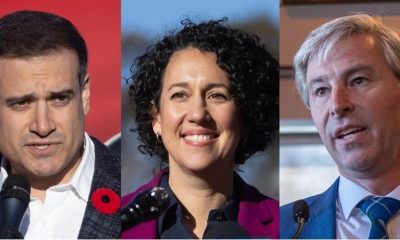Outside of sports and a “Cold front coming down from Canada,” American news media only report on Canadian events that they believe are, or will be, influential to the US. Therefore, when Justin Trudeau’s announcement, having finally read the room, that Canada will be reducing the number of permanent residents admitted by more than 20 percent and temporary residents like skilled workers and college students will be cut by more than half made news south of the border, I knew the American media felt Trudeau’s about-face on immigration was newsworthy because many Americans would relate to Trudeau realizing Canada was accepting more immigrants than it could manage and are hoping their next POTUS will follow Trudeau’s playbook.
Canada, with lots of space and lacking convenient geographical ways for illegal immigrants to enter the country, though still many do, has a global reputation for being incredibly accepting of immigrants. On the surface, Montreal, Toronto, and Vancouver appear to be multicultural havens. However, as the saying goes, “Too much of a good thing is never good,” resulting in a sharp rise in anti-immigrant sentiment, which you can almost taste in the air. A growing number of Canadians, regardless of their political affiliation, are blaming recent immigrants for causing the housing affordability crises, inflation, rise in crime and unemployment/stagnant wages.
Throughout history, populations have engulfed themselves in a tribal frenzy, a psychological state where people identify strongly with their own group, often leading to a ‘us versus them’ mentality. This has led to quick shifts from complacency to panic and finger-pointing at groups outside their tribe, a phenomenon that is not unique to any particular culture or time period.
My take on why the American news media found Trudeau’s blatantly obvious attempt to save his political career, balancing appeasement between the pitchfork crowd, who want a halt to immigration until Canada gets its house in order, and immigrant voters, who traditionally vote Liberal, newsworthy; the American news media, as do I, believe immigration fatigue is why Kamala Harris is going to lose on November 5th.
Because they frequently get the outcome wrong, I don’t take polls seriously. According to polls in 2014, Tim Hudak’s Progressive Conservatives and Kathleen Wynne’s Liberals were in a dead heat in Ontario, yet Wynne won with more than twice as many seats. In the 2018 Quebec election, most polls had the Coalition Avenir Québec with a 1-to-5-point lead over the governing Liberals. The result: The Coalition Avenir Québec enjoyed a landslide victory, winning 74 of 125 seats. Then there’s how the 2016 US election polls showing Donald Trump didn’t have a chance of winning against Hillary Clinton were ridiculously way off, highlighting the importance of the election day poll and, applicable in this election as it was in 2016, not to discount ‘shy Trump supporters;’ voters who support Trump but are hesitant to express their views publicly due to social or political pressure.
My distrust in polls aside, polls indicate Harris is leading by a few points. One would think that Trump’s many over-the-top shenanigans, which would be entertaining were he not the POTUS or again seeking the Oval Office, would have him far down in the polls. Trump is toe-to-toe with Harris in the polls because his approach to the economy—middle-class Americans are nostalgic for the relatively strong economic performance during Trump’s first three years in office—and immigration, which Americans are hyper-focused on right now, appeals to many Americans. In his quest to win votes, Trump is doing what anyone seeking political office needs to do: telling the people what they want to hear, strategically using populism—populism that serves your best interests is good populism—to evoke emotional responses. Harris isn’t doing herself any favours, nor moving voters, by going the “But, but… the orange man is bad!” route, while Trump cultivates support from “weird” marginal voting groups.
To Harris’s credit, things could have fallen apart when Biden abruptly stepped aside. Instead, Harris quickly clinched the nomination and had a strong first few weeks, erasing the deficit Biden had given her. The Democratic convention was a success, as was her acceptance speech. Her performance at the September 10th debate with Donald Trump was first-rate.
Harris’ Achilles heel is she’s now making promises she could have made and implemented while VP, making immigration and the economy Harris’ liabilities, especially since she’s been sitting next to Biden, watching the US turn into the circus it has become. These liabilities, basically her only liabilities, negate her stance on abortion, democracy, healthcare, a long-winning issue for Democrats, and Trump’s character. All Harris has offered voters is “feel-good vibes” over substance. In contrast, Trump offers the tangible political tornado (read: steamroll the problems Americans are facing) many Americans seek. With Trump, there’s no doubt that change, admittedly in a messy fashion, will happen. If enough Americans believe the changes he’ll implement will benefit them and their country…
The case against Harris on immigration, at a time when there’s a huge global backlash to immigration, even as the American news media are pointing out, in famously immigrant-friendly Canada, is relatively straightforward: During the first three years of the Biden-Harris administration, illegal Southern border crossings increased significantly.
The words illegal immigration, to put it mildly, irks most Americans. On the legal immigration front, according to Forbes, most billion-dollar startups were founded by immigrants. Google, Microsoft, and Oracle, to name three, have immigrants as CEOs. Immigrants, with tech skills and an entrepreneurial thirst, have kept America leading the world. I like to think that Americans and Canadians understand the best immigration policy is to strategically let enough of these immigrants in who’ll increase GDP and tax base and not rely on social programs. In other words, Americans and Canadians, and arguably citizens of European countries, expect their governments to be more strategic about immigration.
The days of the words on a bronze plaque mounted inside the Statue of Liberty pedestal’s lower level, “Give me your tired, your poor, your huddled masses yearning to breathe free…” are no longer tolerated. Americans only want immigrants who’ll benefit America.
Does Trump demagogue the immigration issue with xenophobic and racist tropes, many of which are outright lies, such as claiming Haitian immigrants in Ohio are abducting and eating pets? Absolutely. However, such unhinged talk signals to Americans who are worried about the steady influx of illegal immigrants into their country that Trump can handle immigration so that it’s beneficial to the country as opposed to being an issue of economic stress.
In many ways, if polls are to be believed, Harris is paying the price for Biden and her lax policies early in their term. Yes, stimulus spending quickly rebuilt the job market, but at the cost of higher inflation. Loosen border policies at a time when anti-immigrant sentiment was increasing was a gross miscalculation, much like Trudeau’s immigration quota increase, and Biden indulging himself in running for re-election should never have happened.
If Trump wins, Democrats will proclaim that everyone is sexist, racist and misogynous, not to mention a likely White Supremacist, and for good measure, they’ll beat the “voter suppression” button. If Harris wins, Trump supporters will repeat voter fraud—since July, Elon Musk has tweeted on Twitter at least 22 times about voters being “imported” from abroad—being widespread.
Regardless of who wins tomorrow, Americans need to cool down; and give the divisive rhetoric a long overdue break. The right to an opinion belongs to everyone. Someone whose opinion differs from yours is not by default sexist, racist, a fascist or anything else; they simply disagree with you. Americans adopting the respectful mindset to agree to disagree would be the best thing they could do for the United States of America.
______________________________________________________________
Nick Kossovan, a self-described connoisseur of human psychology, writes about what’s
on his mind from Toronto. You can follow Nick on Twitter and Instagram @NKossovan.
Related


































